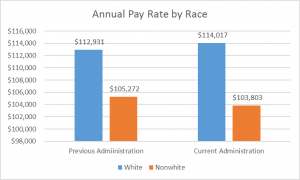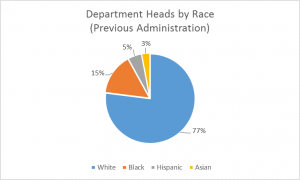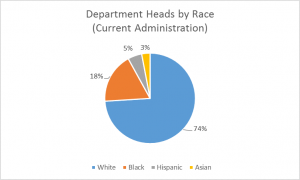by Carmillia Jackson, McCormack Graduate School student
 Growing up in one of the country’s most educated, healthiest, and wealthiest states, I have always taken pride in calling Massachusetts my home. Living in such a diverse community in which there are many my age who are first-generation American-born citizens with families who emigrated from the islands of Dominican Republic, Cape Verde, and Haiti, I just always assumed that the place where I lived supported the progress of the residents who made up the community.
Growing up in one of the country’s most educated, healthiest, and wealthiest states, I have always taken pride in calling Massachusetts my home. Living in such a diverse community in which there are many my age who are first-generation American-born citizens with families who emigrated from the islands of Dominican Republic, Cape Verde, and Haiti, I just always assumed that the place where I lived supported the progress of the residents who made up the community.
Most of you may ask, “Well, what do you mean by this?”. Let me give you some personal and statistical insights into the demographics of our local government workforce.
I envision a diverse workforce that mirrors my neighborhood. I look forward to hearing local ideas to help build a better foundation for the disadvantaged in my community. As I became more educated and involved in my community, I find that most local-level decisions were being made for minorities, yet not getting a perspective from those in the community. And I discovered that I am not the only woman of color feeling the lack of diversity and inclusion within public agencies.
According to Boston by the Numbers, Boston is a majority minority city, as are other surrounding towns and cities in the area. However, the City of Boston 2015 Workforce Report, shows an issue of racial inequality when looking at factors such as department heads by race, wages by race, and the average annual income by race within our own local government agencies.

When looking at the data presented, I can relate on many levels. As a person of color, I reflect on my every day experience working for a local municipality and see few minority public managers. But I also think about how public administrators might be missing out on insights and personal experiences from members of the community when seeking to find solutions to issues affecting them.
Breaking a system – one that has been in place for so long to ultimately prevent the inclusion and progression of black minorities – is still a work in progress in our country. Although we are better off than we once were, I still see a lot of headway to be made.
President Barack Obama talked frequently about inclusion, even ordering that local, state, and federal agencies take initiatives to diversify their workforce. But to my surprise, I found that this was going to be a slow, although necessary, dynamic, and cultural change.
I guess you can say that is the reason why I chose to pursue my degree in public administration. I aspire to be the face and the voice of those unheard and unknown. I want to bring forth issues and experiences that people in urban communities face every day, such as the struggle of dealing with mental illness, broken family dynamics due to the reality of the criminal justice system, homelessness, and other issues.
In conclusion, Massachusetts can be a model state to others in the country. Although it has a diversified population, government can better represent the demographics of the state and find solutions to issues that affect community members of all racial and ethnic backgrounds. Having people who work in public agencies who truly represent the community has the huge potential to make both working and living spaces more diverse and inclusive.
Carmillia Jackson studies public administration at UMass Boston’s John W. McCormack Graduate School of Policy and Global Studies.



March 23, 2017 at 3:13 pm
Great post, Carmillia!